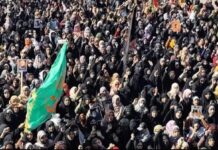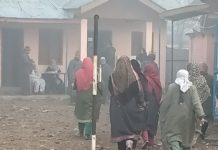New Delhi (NVI): A serological-survey conducted in Mumbai showed that more than half the population, or 57 per cent, tested in slums had been exposed to coronavirus, while only 16 per cent of those tested in residential societies.
The survey was conducted by Mumbai’s civic body, the Brihanmumbai Municipal Corporation (BMC) along with the Tata Institute of Fundamental Research (TIFR) and the Niti Aayog.
According to the survey, infection rate among women was found to be higher than men had developed antibodies. Among people in slums, 59.3 per cent of the 2,297 women tested, and 53.2 per cent of the 1,937 men tested had antibodies against COVID-19.
In non-slum areas, 16.8 per cent of women tested and 14.9 per cent of men tested had developed antibodies, it added.
A total of 8,870 people targeted 6,936 were surveyed indicating that people in non-slums were reluctant to take part in the survey. These samples were collected from the general population from Mumbai’s Dahisar, Chembur and Matunga areas.
The duration of this survey was 12 to 14 days in the month of July and a second round of sero-survey will be conducted a month later.
The BMC authorities who conducted the survey said, shared facilities such as toilets, high population density and lack of social distancing may be among reasons why those living in slums were 3.5 times more exposed to the virus than people in residential societies.
In view of the current prevalence, the death rate of COVID-19 patients in Mumbai is still being considered low.
This sero-survey suggests that the low death rate can also be attributed to the implementation of effective measures by the BMC along with its efforts to prevent further spread of virus.
However, the alarming rise of coronavirus cases in non-slum areas has also been reduced with the help of more cleanliness and social distancing.
So far, Mumbai has recorded 1,10,846 coronavirus cases and 6,184 deaths.
-RJV








